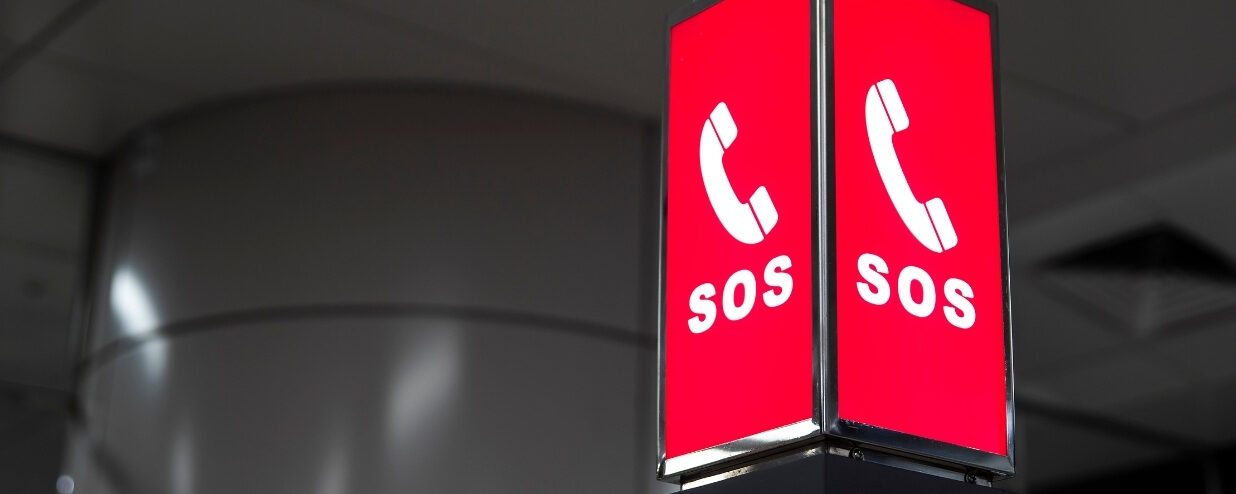Japan, known for its rich culture, advanced technology, and beautiful landscapes, is a popular destination for tourists worldwide. However, like any country, it’s not immune to emergencies. Being prepared with some basic Japanese language skills can make a significant difference in navigating these situations. This blog post provides essential phrases and tips to help you communicate effectively during emergencies in Japan.
1. Basic Emergency Phrases
Understanding and memorizing a few key phrases can be lifesaving in emergencies. Here’s a list to get you started:
- 助けてください!Tasukete kudasai! – Help!
- 火事です!Kaji desu! – Fire!
- 病院に行きたいです。Byōin ni ikitai desu. – I need a doctor.
- 救急車を呼んでください。Kyuukyuusha o yonde kudasai. – Call an ambulance.
- 英語を話せる人はいますか?Eigo o hanaseru hito wa imasu ka? – Is there anyone who speaks English?
- 具合が悪いんです。Guai ga warui desu. – I am not feeling well; I need help please!
2. Understanding Emergency Alerts
Japan is prone to natural disasters like earthquakes, tsunamis, and typhoons. Local authorities often issue alerts through loudspeakers, television, and mobile phones. Familiarising yourself with these terms can help you understand the situation:
- 地震 Jishin – Earthquake
- 津波 Tsunami – Tsunami
- 避難 Hinan – Evacuation
- 避難所 Hinanjo – Emergency Shelter
- 火事 Kaji – Fire!
3. Communicating with Emergency Services
When contacting emergency services, conveying your message clearly and concisely is crucial. Here are some phrases that can help:
- [場所]にいます。[Basho] ni imasu. – I’m at [location].
- すぐに助けが必要なんです。Sugu ni tasuke ga hitsuyōna desu. – I need help immediately.
- 事故です。Jiko desu. – There has been an accident.
Japanese phrases for calling an ambulance
- When talking to 119: きゅうきゅうしゃをお願いします。 Kyū-kyū-sha o onegai shimasu. – “I need an ambulance/This is a medical emergency.
- When asking nearby people to call an ambulance: 救急車をお願いします。Kyū-kyū-sha o yonde kudasai. – Please call an ambulance.
Let’s simulate an Emergency Call: an Ambulance in Japan
Imagine you’re in Tokyo, and a friend suddenly collapses. Despite the bustling city around you, the moment demands clarity and swift action. Here’s a step-by-step simulation of the call:
Dial 119: The universal number for emergencies in Japan, connecting you to the fire department responsible for dispatching ambulances.
Operator Response: 119番の消防ですが、火事ですか、救急ですか? 119-Ban no shōbōdesuga, kajidesu ka, kyūkyūdesu ka? – This is 119, Fire Department. Is it fire or a medical emergency?
Your Response: 救急です。Kyūkyūdesu. – It’s a medical emergency.
Operator Response: 救急ですね。住所を教えてください。Kyūkyūdesu ne. Jūsho o oshietekudasai. – Medical emergency. Please tell me your address.
Your Response: Provide your exact location. (E.g., 東京都渋谷区渋谷1丁目12-13郵便局の前です。Tōkyōtoshibuyaku Shibuya 1-chōme 12 – 13 yūbinkyoku no maedesu. – Tokyo-to、 Shibuya-ku, Shibuya 1-chome 12-13. In front of the post office.
Operator Response: nature of emergency: 怪我ですか病気ですか?Kegadesu ka byōkidesu ka? – Is it an injury or illness?
Your Response: 病気です。人が倒れています。Byouki desu. Hito ga taorete imasu. – It’s an illness. Someone has collapsed.
Operator Response: わかりました。あと5分ほどで救急車が到着します。Wakarimashita. Ato 5-bu hodo de kyūkyūsha ga tōchaku shimasu. – Understood. The ambulance will arrive in about 5 minutes.
Additional Tips:
- After the Call: The operator might give instructions on how to care for the person or ensure their safety until the ambulance arrives. It’s crucial not to hang up until they have all the information they need and have confirmed the details with you.
- English-speaking operators are available in Tokyo, but this may not be true in all areas. If communicating in English, speak slowly and clearly.
4. Visiting the Hospital
In case you need to visit a hospital, knowing how to describe your condition is important:
- 気分が悪いです。Kibun ga warui desu. – I feel sick.
- 熱があります。Netsu ga arimasu. – I have a fever.
- ここが痛いです。Koko ga itai desu. – It hurts here.
5. Safety Tips
- Stay informed: Keep a portable radio or a smartphone app that can receive emergency alerts.
- Learn basic Japanese: Even basic knowledge can greatly assist in understanding instructions or asking for help.
- Keep emergency numbers handy: Police (110), Ambulance/Fire (119), and the Japan Helpline (0570-000-911), an English-speaking emergency assistance service.
Remember!
While we all hope never to face an emergency, being prepared is key to ensuring safety. Knowing basic Japanese phrases for emergencies can significantly affect how effectively you navigate and resolve these incidents. Whether traveling or living in Japan, investing time in learning these phrases and understanding the local emergency procedures can provide peace of mind and potentially save lives.
We have a free Japanese test to help you determine your approximate Japanese level for Coto. To take the test, click the button below.
